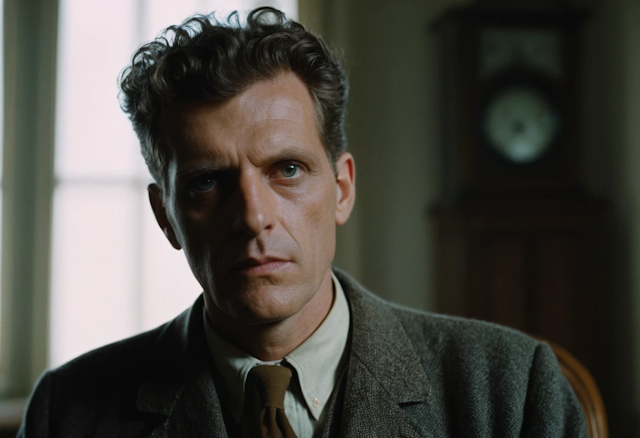Exploring the Philosophy of Ludwig Wittgenstein
This document delves into the profound philosophical contributions of Ludwig Wittgenstein, a pivotal figure in 20th-century philosophy. Divided into five sections, each focusing on different aspects of his work, this article aims to provide a comprehensive overview of his thoughts on language, meaning, and the nature of reality. Each section is enriched with ten quotes from Wittgenstein, reflecting his unique perspective and intellectual depth.
The Nature of Language
Wittgenstein's exploration of language is foundational to his philosophy. He believed that language is not merely a tool for communication but a complex system that shapes our understanding of the world. His early work, particularly in the "Tractatus Logico-Philosophicus," emphasizes the logical structure of language and its relationship to reality.
- "The limits of my language mean the limits of my world."
- "A picture can represent any reality whose form it has."
- "What can be shown cannot be said."
- "Language is a part of our organism and no less complicated than it."
- "Words are not the things they represent."
- "The meaning of a word is its use in the language."
- "Philosophy is a battle against the bewitchment of our intelligence by means of language."
- "In order to know an expression, we must know its use."
- "A word is a move in the game of life."
- "The essence of language is not in its words but in its use."
Meaning and Understanding
Wittgenstein's later work, particularly in "Philosophical Investigations," shifts focus from the logical structure of language to the practical use of language in everyday life. He argues that meaning is derived from the context and the way words are used in various forms of life.
- "For a large class of cases—though not for all—in which we employ the word 'meaning,' it can be defined as the use of a word in the language."
- "Understanding a sentence means understanding a language."
- "The meaning of a word is its use in the language."
- "We can only describe the use of a word, not its meaning."
- "A word has meaning only in the context of a language game."
- "The concept of meaning is not a fixed entity but a fluid one."
- "To understand a language is to know how to use it."
- "The role of language is to guide us in our actions."
- "We do not use language to describe reality; we use it to create it."
- "Meaning is not a property of words but a function of their use."
The Limits of Knowledge
Wittgenstein's philosophy also addresses the limits of human knowledge and understanding. He challenges the notion that language can fully capture the complexities of reality, suggesting that there are aspects of existence that remain ineffable.
- "Whereof one cannot speak, thereof one must be silent."
- "There are various kinds of symbol, and they have different functions."
- "The world is all that is the case."
- "A picture can represent any reality whose form it has."
- "We make to ourselves pictures of facts."
- "The limits of my language mean the limits of my world."
- "What can be shown cannot be said."
- "The world is the totality of facts, not of things."
- "A fact is a state of affairs."
- "The essence of a thing is not always visible."
The Role of Philosophy
Wittgenstein viewed philosophy as a therapeutic endeavor, aimed at clarifying thoughts and dissolving confusions rather than providing definitive answers. He believed that many philosophical problems arise from misunderstandings of language.
- "Philosophy is a battle against the bewitchment of our intelligence by means of language."
- "Philosophy should be the study of the use of language."
- "The philosopher's treatment of a question is like the treatment of an illness."
- "Philosophy is not a theory but an activity."
- "The aim of philosophy is to make the problems disappear."
- "Philosophy is a kind of therapy for the mind."
- "The philosopher's task is to clarify thoughts."
- "Philosophy leaves everything as it is."
- "Philosophy is the investigation of the use of language."
- "The philosopher's role is to dissolve the confusions of language."
Ethics and Aesthetics
Wittgenstein also touched upon ethics and aesthetics, suggesting that these realms, like language, are deeply intertwined with human experience. He believed that ethical and aesthetic judgments are not merely subjective but are rooted in the forms of life we inhabit.
- "Ethics and aesthetics are one."
- "The good is not a property of things."
- "We cannot speak about ethics; we can only live it."
- "Aesthetics is not a separate domain but part of our life."
- "The beauty of a thing is not in its appearance but in its use."
- "What is beautiful is what is useful."
- "The ethical is not a matter of rules but of living."
- "We cannot express the inexpressible."
- "The essence of ethics is not in its principles but in its practice."
- "Aesthetic experience is a form of life."
Ludwig Wittgenstein's philosophical inquiries have profoundly influenced our understanding of language, meaning, and the nature of reality. His work challenges us to reconsider the ways we use language and the implications of our linguistic practices. By emphasizing the importance of context and the fluidity of meaning, Wittgenstein invites us to engage with philosophy not as a search for absolute truths but as a means of clarifying our thoughts and experiences. His legacy continues to resonate, reminding us of the intricate relationship between language, thought, and the world we inhabit.










